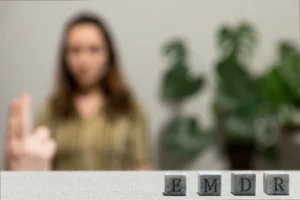PTSD & C-PTSD Treatment in Arizona
At Cornerstone Healing Center, we offer residential and virtual treatment programs for Post-Traumatic Stress Disorder (PTSD) and complex PTSD.
Begin your insurance verification today

Living with PTSD
Living with PTSD involves managing the ongoing emotional and psychological impacts of experiencing past traumas. Symptoms like flashbacks, panic attacks, hypervigilance, and avoidance behaviors persist, often intensifying unexpectedly.
Daily life regularly gets interrupted by painful memories that transport one back to the events. Sleep struggles often fatigue you, while concentration issues affect work and relationships.
With PTSD, moving on from traumatic exposures isn’t as easy as just “moving on.” The brain and body’s inbuilt survival wiring keeps past fears lingering close to the surface long term. With Cornerstone’s compassionate and evidence-based care for PTSD, you can begin the process of healing and look forward to a secure and peaceful future.
Understanding PTSD
What is PTSD?
What is Complex PTSD?
Who Can Get PTSD?
Risk Factors
Diagnosing PTSD
Post-Traumatic Stress Disorder (PTSD) is a mental health condition triggered by exposure to actual or threatened death, serious injury, or sexual violation through directly experiencing, witnessing, or learning about traumatic events.
Hallmark symptoms include re-experiencing the trauma through intrusive memories, nightmares, and emotional/physical distress when reminded of the event. Avoidance of trauma reminders often co-occurs alongside increased arousal like hypervigilance, startle reactions, irritability, and sleep issues.
Complex PTSD (C-PTSD) is a more severe form of Post-Traumatic Stress Disorder that can develop after prolonged or repeated exposure to trauma, especially trauma that occurs in situations where the individual feels trapped or powerless. This could include long-term abuse, captivity, or living in a war zone, among other experiences.
The main difference between PTSD and C-PTSD is the length of trauma exposure – complex PTSD is caused by trauma that occurs over a long period of time.
While frequently associated with veterans, PTSD affects broad demographics after diverse traumatic exposures like natural disasters, accidents, violence, abuse, or sudden loss. Estimates state that 8 million American adults have PTSD in a given year. Substantial research links brain changes like altered prefrontal cortex functioning and neurotransmitter imbalances to the exaggerated fear and stress responses displayed.
Certain pre-trauma, trauma-related, and post-event factors have been shown to elevate the risk of developing PTSD. Trauma severity level correlates strongly with events involving actual or threatened death/injury, witnessing others harmed, and childhood trauma, increasing the probability of PTSD heavily. Individual characteristics like prior mental illnesses, minority status, and low income also heighten vulnerability as support access declines.
Additional risks range from prior repeated trauma put you at risk as well. A lack of social support and life stresses or further trauma burdens can hinder recovery significantly.
Gender also plays a role, with adult women twice as likely to develop PTSD potentially tied to types of trauma faced and hormones influencing brain pathways for threat response regulation.
Making an accurate PTSD diagnosis requires specialized training, given similarities to other post-trauma responses in the initial month plus disorder complexities. Our clinicians conduct interviews to gauge the types of trauma exposure you’ve faced. We also assess symptom clusters from flashbacks and physical reactions to emotional numbness and hypervigilance that endure over a month.
We are careful to provide an accurate diagnosis and cover all bases, including ruling out acute stress disorder, substance abuse, depression, and anxiety.
Our PTSD Treatment Programs

Residential Programs
Our residential programs for PTSD provide around-the-clock care in a safe, supportive environment. With a mix of therapy, medication, and holistic approaches, this immersive program helps you address the core issues behind your PTSD and develop lasting coping skills for long-term recovery.

Outpatient Programs
Our outpatient treatment for PTSD provides flexible, part-time care, enabling individuals to focus on recovery while keeping up with daily responsibilities. With therapy, medication management, and supportive services, we guide you through your symptoms and recovery journey.

Virtual IOP
Our Virtual Intensive Outpatient Program (IOP) for PTSD offers comprehensive, convenient support from the comfort of home. With individual therapy, group counseling, and secure online resources, it’s a great option for those who need flexible care but want the full support of a structured program.

Cognitive Behavioral Therapy
Cognitive Behavioral Therapy is a highly effective treatment for PTSD. It involves identifying and challenging negative thought patterns and behaviors to alter unwanted thoughts.

Medication Management
Medication management is often used in conjunction with therapy. Medications can help regulate brain chemistry and alleviate symptoms.

Holistic Therapies
We emphasize holistic therapies that address the mind, body, and spirit. This can include mindfulness practices, yoga, and nutritional counseling. These practices help you to manage emotions and reduce stress. By focusing on being present without judgment, you can gain tools to break free from PTSD, creating a strong foundation for recovery.

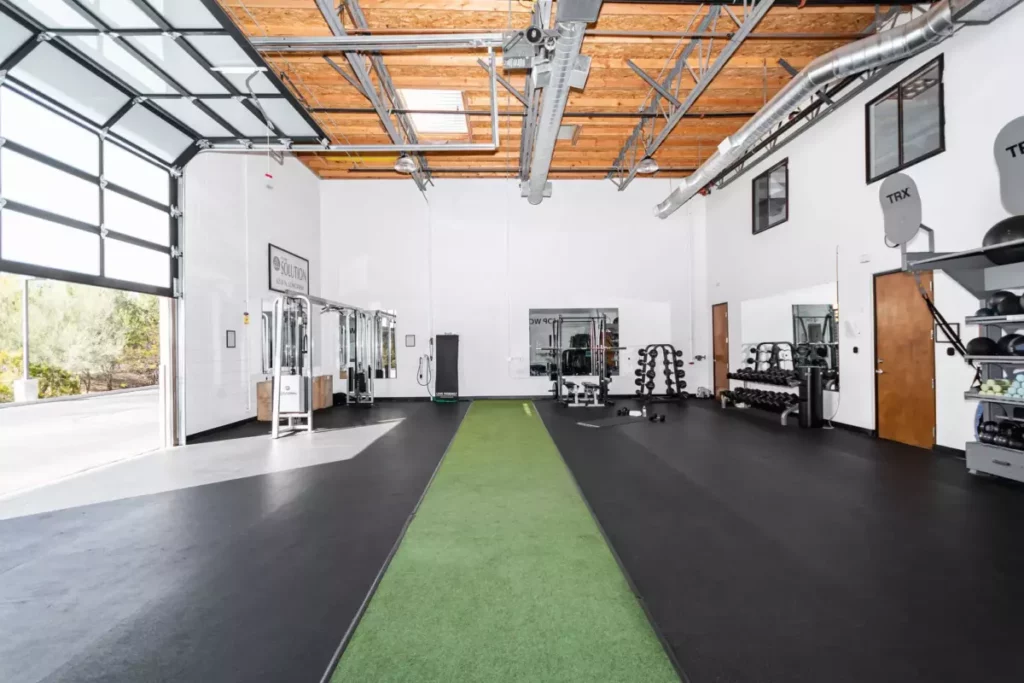
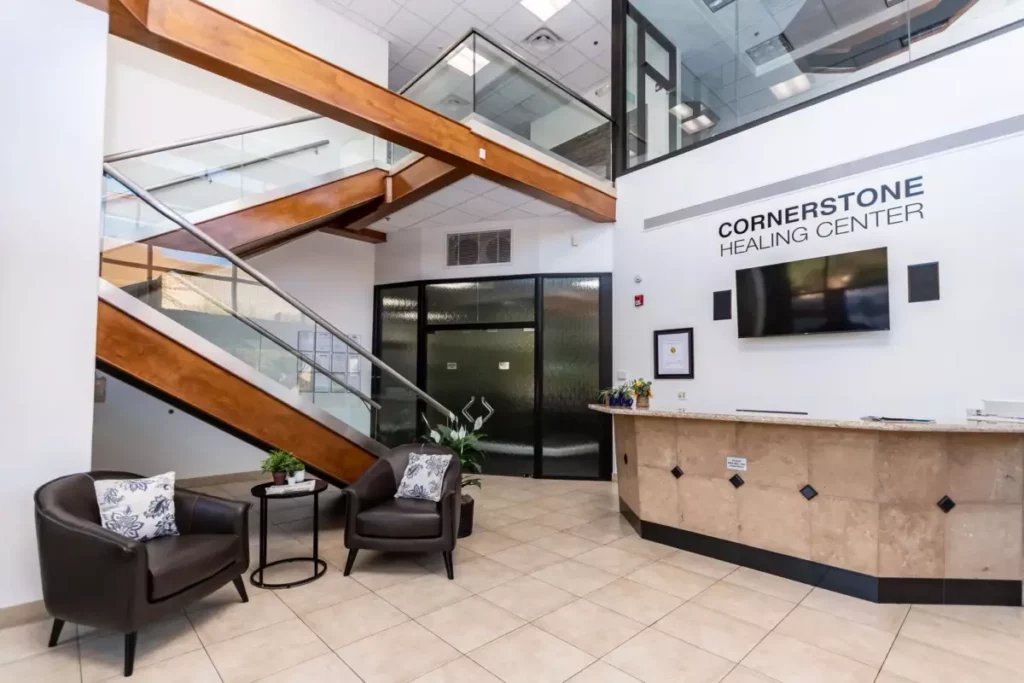


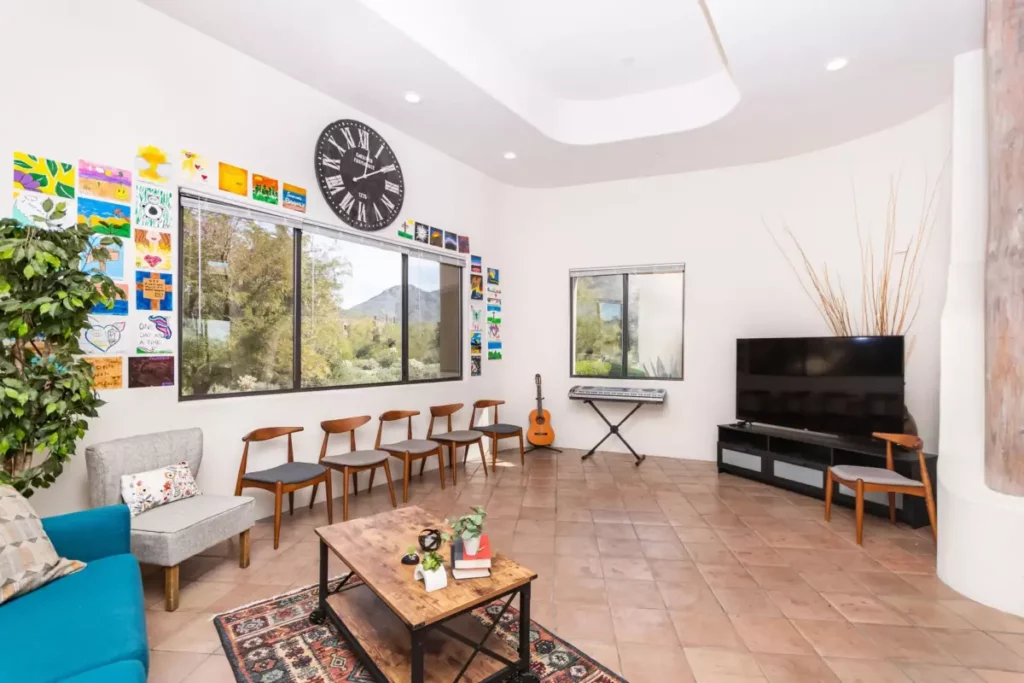



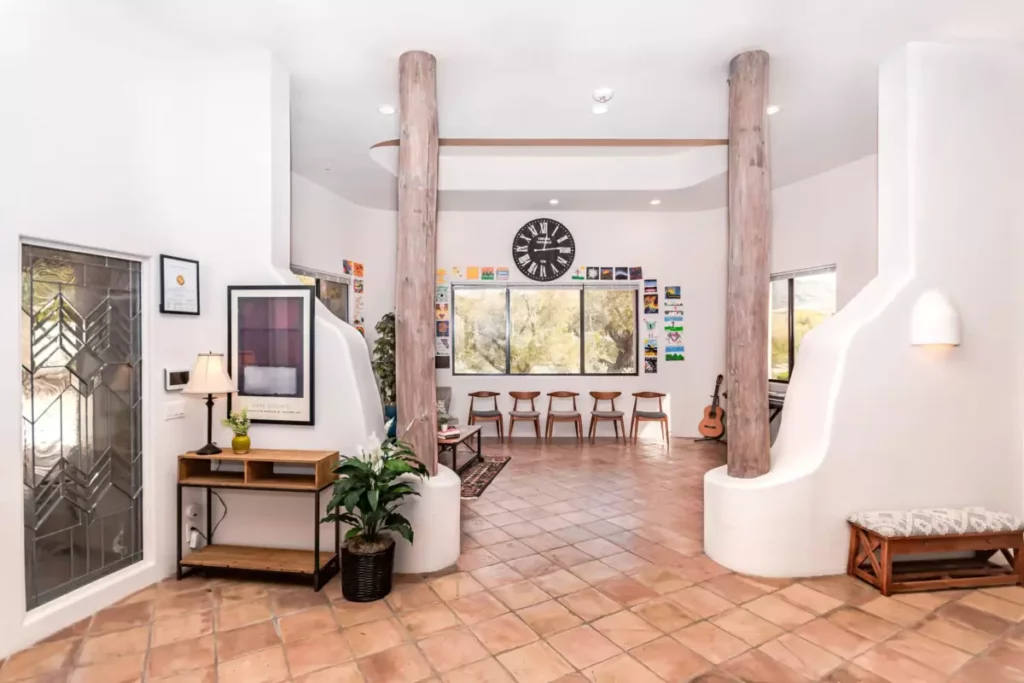



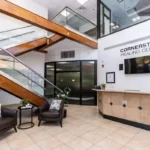








Our Scottsdale Residential Treatment Center
Cornerstone’s residential treatment center is located in Scottsdale, Arizona and offers lifesaving mental health treatment services. The environment we create for you promotes healing and focus while also ensuring your comfort. We have group and learning rooms that provide space for collective therapy sessions and educational workshops.
We have individual therapy rooms that provide privacy and comfort for one-on-one sessions, allowing our clients to work with their therapists on resolving personal issues. You have access to a large fitness facility as well.
At Cornerstone Healing Center, we are committed to delivering a holistic approach to trauma related conditions, blending comfort, therapy, and personal development for a full experience.
Our Treatment Approach
Our Arizona Behavioral Health Center for trauma-related conditions is designed to provide a supportive and safe space so you can heal at your own pace.
Integrativex Approach
Our integrative approach addresses the physical, mental, and emotional sides of recovery, with a deep understanding of your trauma and triggers.
Dedication Clinical Team
Our team of dedicated specialists provide personalized, evidence-based treatment for trauma. We offer a confidential space to heal.
Comprehensive Care
Our trauma treatment programs provide continuous, caring support tailored to your unique needs. We’re here to walk alongside you.
Broad Treatment Options
From residential to virtual treatment programs, we offer flexible options, our treatment programs are designed to meet you wherever you are.
What to Expect
- An assessment of your individual needs and goals to create a personalized addiction rehabilitation plan.
- A treatment plan for mental health or co-occurring (or dual diagnosis) behavioral health conditions.
- Evidence-based therapies include cognitive behavioral therapy, dialectical behavior therapy, and trauma-informed care.
- Holistic approaches include yoga, meditation, art therapy, and music therapy
- Nutrition counseling and physical fitness activities for overall health and wellness.
- Family involvement in the recovery process through Common Ground or family sessions.
- Aftercare planning that includes relapse prevention strategies for long-term success in sobriety.
Client Family Testimonial
Meet Our Arizona Treatment Team
Meet our experienced masters-level treatment professionals passionately dedicated to providing compassionate, expert care in our state-of-the-art rehabilitation facilities and recovery centers in Scottsdale, AZ and Phoenix, AZ.
IOP Clinical Lead of Scottsdale
Lori Mischke, MSAC, LIAC
Lori Mischke, MSAC, LIAC, is a skilled clinical leader with over eight years of experience in behavioral health and substance use treatment. She holds a Master’s in Substance Abuse Counseling and is a board-certified clinical supervisor.
More About LoriClinical Director of Phoenix Program
Nate Bush, LCSW
Nate began his recovery journey in 2010 and earned a Master's in Social Work from ASU. He’s been in the Behavioral Health field since 2013. Specializing in CBT, DBT, and grief, Nate is now the Clinical Director of our Phoenix program, underlined by his passion for helping others who struggled with substance abuse issues as he did.
More About NateWhen is inpatient or residential treatment appropriate for PTSD?
Inpatient or residential treatment is considered when PTSD significantly disrupts daily functioning or poses a risk to the individual’s safety. This level of care benefits those with severe symptoms, offering a structured environment, intensive therapy, and continuous support.
Do you accept my insurance coverage?
Most likely, yes! Cornerstone accepts most major insurances. To be sure, you can fill out our commitment-free form to verify your coverage.
How can I support a loved one with PTSD?
Supporting a loved one with PTSD involves empathy, understanding, and patience. Encourage open communication and active listening without pushing them to share more than they are comfortable with. Encourage them to seek professional help and offer to be there for them through their treatment process. Educating yourself about PTSD can also be immensely helpful in providing the right support.
Let's begin the journey together
Frequently Asked Questions
Knowledge base
PTSD and Trauma Information
Get Started Now
Call and speak with one of our caring team members about help for you or a loved one.






